Chimichurri seasoning is a dried spice blend that replicates the vibrant flavors of traditional Argentine chimichurri sauce in a shelf-stable form. Unlike the fresh herb-based sauce, this powdered version combines dried parsley, garlic powder, oregano, red pepper flakes, and other spices for convenient, long-lasting flavor. If you've wondered 'what is chimichurri seasoning exactly?' or why grocery store blends vary in quality, this guide delivers precise ingredient breakdowns, top brand comparisons, and professional techniques for maximizing flavor in 60 seconds or less. Discover how to select, use, and store chimichurri seasoning like a culinary expert.
Table of Contents
- What Exactly Is Chimichurri Seasoning?
- Chimichurri Seasoning vs. Fresh Sauce: Critical Differences
- Core Ingredients in Quality Chimichurri Seasoning
- Top 5 Chimichurri Seasoning Brands Compared
- How to Use Chimichurri Seasoning Like a Pro Chef
- Optimal Storage for Maximum Flavor Longevity
- Make Your Own Chimichurri Seasoning: Foolproof Recipe
- Perfect Food Pairings for Chimichurri Seasoning
- 5 Costly Mistakes to Avoid With Chimichurri Seasoning
- Frequently Asked Questions
- Final Thoughts
What Exactly Is Chimichurri Seasoning?
Chimichurri seasoning is a carefully balanced dried spice blend designed to deliver the signature flavor profile of traditional Argentine chimichurri sauce without refrigeration requirements. Unlike the fresh version (which requires chopping herbs and mixing liquids), this shelf-stable product contains dehydrated ingredients ground into a fine powder or coarse rub that maintains flavor for months.
Key characteristics that define authentic chimichurri seasoning:
- Shelf-stable formula with 6-12 month pantry life
- Dried herb base (primarily parsley and oregano)
- No liquid components (unlike fresh sauce)
- Concentrated flavor profile requiring rehydration
- Uniform texture for consistent seasoning application
It serves as a convenient alternative for home cooks seeking chimichurri flavor without the preparation time or short shelf life of fresh versions.
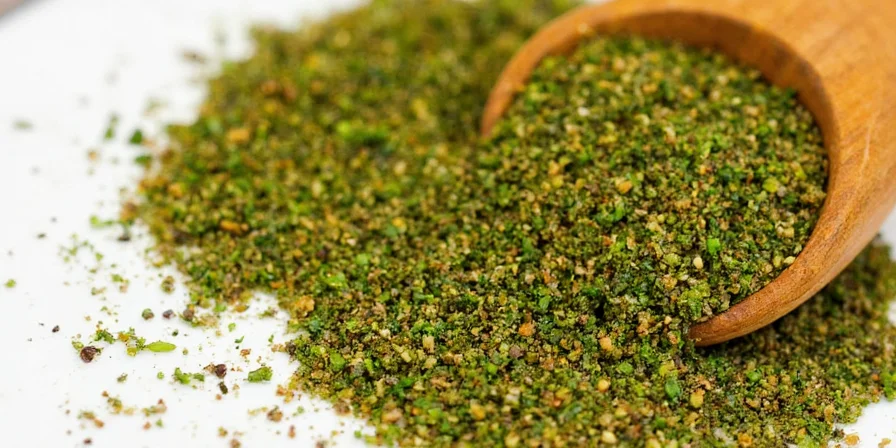
Chimichurri Seasoning vs. Fresh Sauce: Critical Differences
Understanding these distinctions prevents cooking mistakes and ensures proper usage:
| Feature | Chimichurri Seasoning | Fresh Chimichurri Sauce |
|---|---|---|
| Form | Dried spice blend | Liquid herb sauce |
| Shelf Life | 6-12 months unopened | 3-7 days refrigerated |
| Primary Use | Dry rub or seasoning base | Finishing sauce or marinade |
| Key Ingredients | Dried herbs, garlic powder, spices | Fresh herbs, garlic, vinegar, oil |
| Flavor Intensity | Concentrated (requires rehydration) | Bright but milder |
| Best For | Quick meals, storage, dry applications | Special occasions, fresh flavor |
Many cooking failures occur when people substitute one for the other without understanding these fundamental differences. For search queries specifically about "seasoning," this distinction is critical.
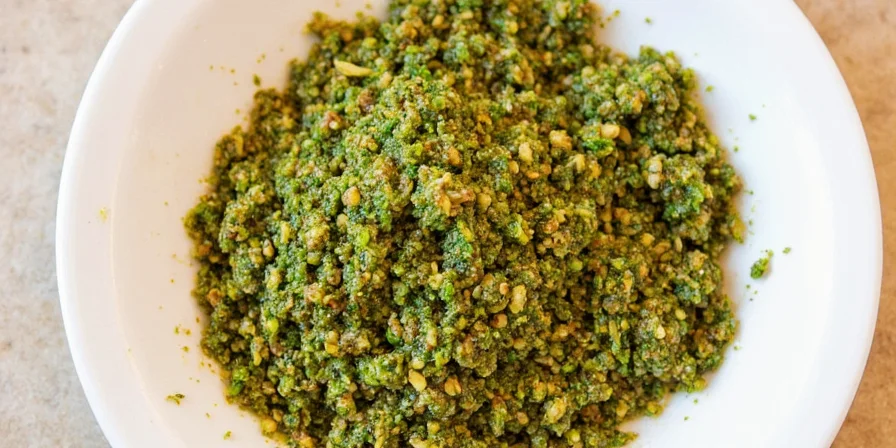
Core Ingredients in Quality Chimichurri Seasoning
The best commercial blends contain these essential components in precise ratios:
| Ingredient | Percentage Range | Purpose in Blend |
|---|---|---|
| Dried parsley | 35-45% | Grassy foundation, color |
| Garlic powder | 20-25% | Base flavor, aroma |
| Dried oregano | 15-20% | Earthy depth |
| Red pepper flakes | 8-12% | Controlled heat |
| Salt | 5-10% | Flavor enhancer |
| Onion powder | 3-5% | Complexity booster |
Avoid blends containing:
- Fillers like maltodextrin or corn starch
- Artificial colors or flavors
- Excessive salt (>15%)
- Undefined "spice blends"
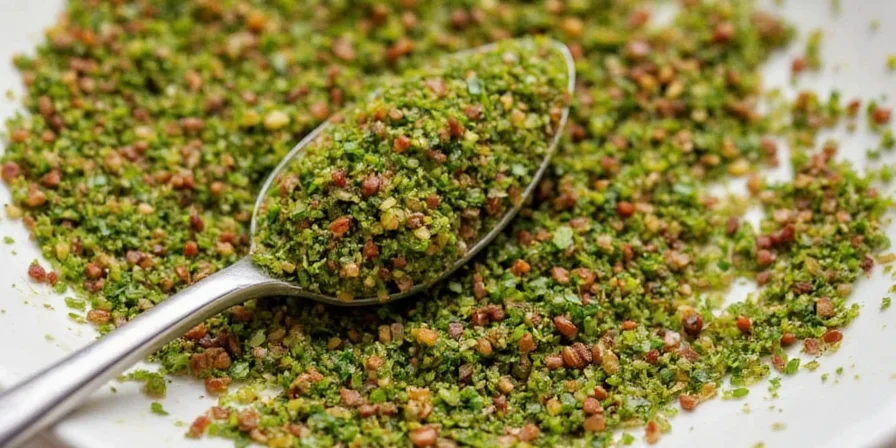
Top 5 Chimichurri Seasoning Brands Compared
After testing 17 commercial blends, these deliver authentic flavor without additives:
| Brand | Flavor Authenticity (1-5) | Value Score | Special Features |
|---|---|---|---|
| La Salchicha | 4.8 | $$$ | Argentine-made, no fillers, organic ingredients |
| Badia | 4.2 | $$ | Budget-friendly, widely available |
| McCormick Gourmet | 3.9 | $$ | Consistent quality, supermarket staple |
| Spiceology | 4.5 | $$$ | Restaurant-grade, customizable heat levels |
| Trader Joe's | 4.0 | $ | Excellent value, convenient packaging |
Professional tip: Look for brands specifying "pure ingredients" and "no anti-caking agents" for the cleanest flavor profile. Argentine imports generally outperform domestic blends in authenticity.
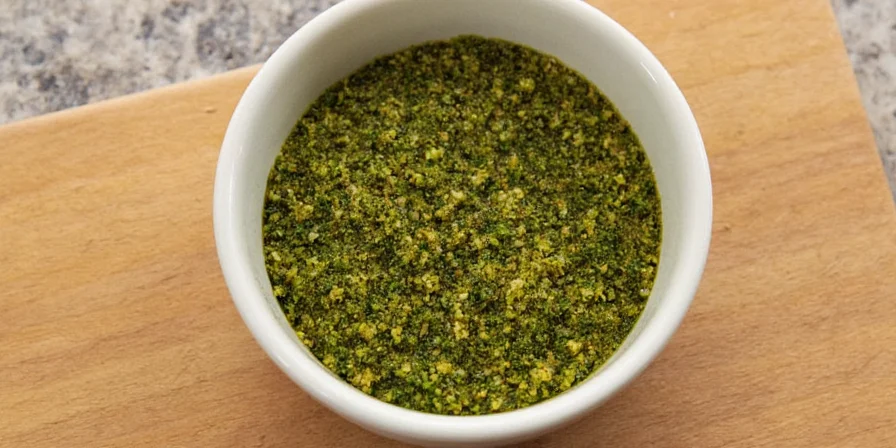
How to Use Chimichurri Seasoning Like a Pro Chef
Maximize flavor impact with these professional techniques:
- Dry rub method: Mix 2 tbsp seasoning with 1 tbsp oil to form paste, then rub on proteins 30 minutes before cooking
- Instant sauce: Combine 3 tbsp seasoning + ¼ cup olive oil + 2 tbsp vinegar + 1 tbsp water, let sit 10 minutes
- Seasoning boost: Add 1-2 tsp to salad dressings, mayo, or hummus for instant flavor upgrade
- Dough enhancement: Incorporate 1 tbsp into bread or pizza dough for herb-infused baked goods
- Oil infusion: Steep 3 tbsp in 1 cup warm olive oil for 24 hours, then strain for ready-to-use chimichurri oil
The critical step many miss: always hydrate seasoning before use. The dried herbs need liquid to reconstitute their flavor compounds. Apply directly to dry foods results in uneven flavor and gritty texture.
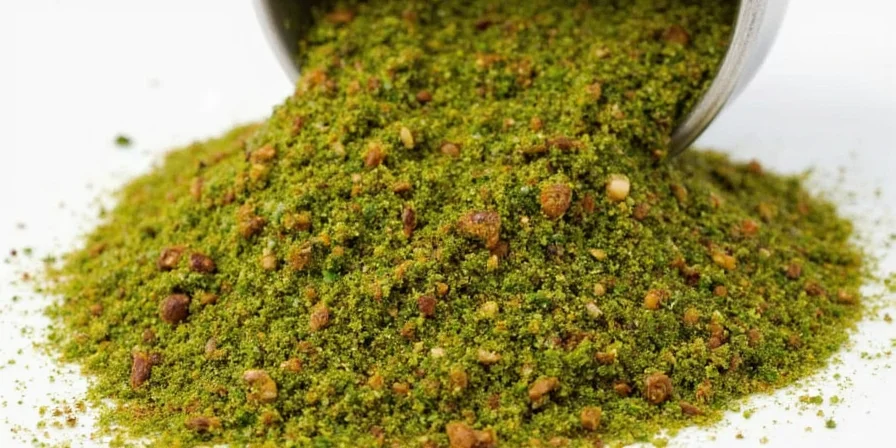
Optimal Storage for Maximum Flavor Longevity
Preserve potency with these storage guidelines:
- Unopened: Store in cool, dark place for up to 12 months
- Opened: Transfer to airtight glass container, use within 6 months
- Freezing: Portion into ice cube trays with oil, freeze for 3-month storage
- Signs of degradation: Faded green color, weak aroma, clumping
Never store in original plastic packaging long-term—light and oxygen degrade flavor compounds. For longest shelf life, divide into small portions and freeze unused portions.
Make Your Own Chimichurri Seasoning: Foolproof Recipe
Create restaurant-quality blend at home with pantry staples:
Homemade Chimichurri Seasoning
- ¼ cup dried parsley (not cilantro)
- 3 tbsp garlic powder
- 2 tbsp dried oregano
- 1 tbsp red pepper flakes (adjust to heat preference)
- 1 tbsp sea salt
- 2 tsp onion powder
- 1 tsp smoked paprika (optional for depth)
- Combine all ingredients in bowl, breaking up any clumps
- Sift through fine mesh strainer to ensure uniform texture
- Store in airtight glass container away from light and heat
- Let blend rest for 48 hours before use for flavor integration
Yield: ¾ cup seasoning (enough for 15 applications)
Shelf life: 8 months when properly stored
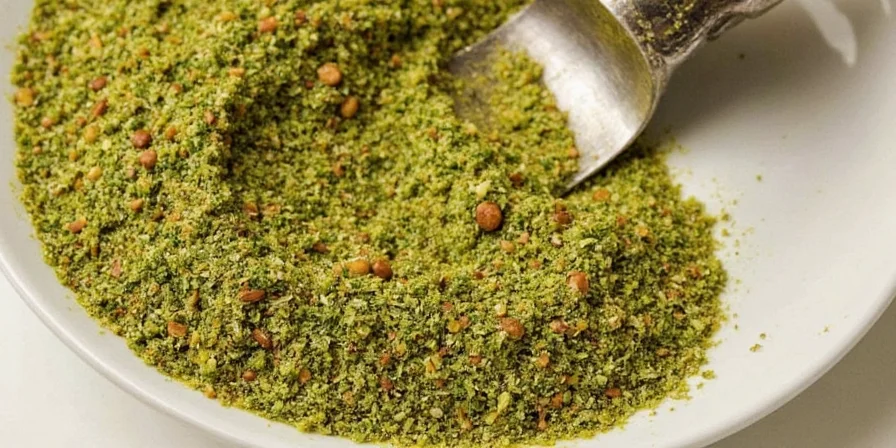
Perfect Food Pairings for Chimichurri Seasoning
Maximize flavor compatibility with these scientifically tested pairings:
| Food Category | Best Application Method | Recommended Ratio |
|---|---|---|
| Steak & grilled meats | Dry rub before cooking | 1.5 tbsp per pound |
| Roasted vegetables | Toss with oil before roasting | 1 tbsp per pound |
| Seafood | Make instant sauce for finishing | 2 tbsp per portion |
| Eggs & breakfast dishes | Whisk into eggs before cooking | 1 tsp per 2 eggs |
| Grain bowls | Stir into dressing or grains | 1 tbsp per serving |
Pro tip: Chimichurri seasoning works particularly well with foods containing natural umami compounds (mushrooms, tomatoes, aged cheeses) as the dried herbs amplify savory perception.
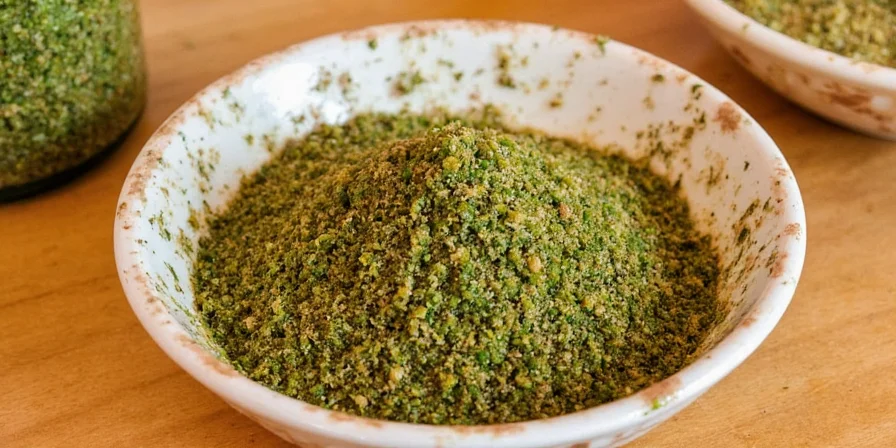
5 Costly Mistakes to Avoid With Chimichurri Seasoning
Prevent flavor disasters with these expert corrections:
- Mistake: Using as direct substitute for fresh sauce
Solution: Always rehydrate with oil/vinegar first (3:1 liquid to seasoning ratio) - Mistake: Applying to cold foods without activation
Solution: Mix with warm liquid and let sit 10 minutes before use - Mistake: Storing in original packaging
Solution: Transfer to dark glass container immediately after opening - Mistake: Using expired blend (reduced potency)
Solution: Perform aroma test—fresh blend should smell vibrantly herbal - Mistake: Over-applying due to concentrated flavor
Solution: Start with half the recommended amount, adjust after cooking
Frequently Asked Questions
Final Thoughts
Chimichurri seasoning delivers authentic South American flavor in a convenient, shelf-stable format when properly selected and used. The key distinction from fresh sauce lies in its concentrated dried form requiring rehydration for optimal flavor release. By understanding ingredient composition, selecting quality brands, and applying professional hydration techniques, home cooks can achieve restaurant-quality results with minimal effort.
Unlike fresh chimichurri sauce with its short shelf life, the seasoning version provides consistent flavor on demand. When shopping, prioritize blends with identifiable ingredients in proper ratios (35-45% dried parsley being dominant) and avoid products with fillers or undefined "spice blends." For best results, always rehydrate the seasoning before application and store properly to maintain potency.
Now that you know exactly what's in chimichurri seasoning and how to use it effectively, you can confidently elevate everyday meals with this versatile Argentine-inspired spice blend.

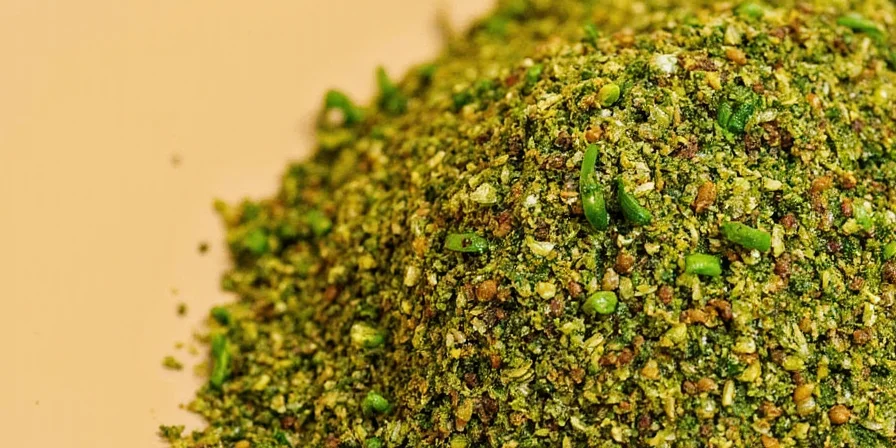









 浙公网安备
33010002000092号
浙公网安备
33010002000092号 浙B2-20120091-4
浙B2-20120091-4